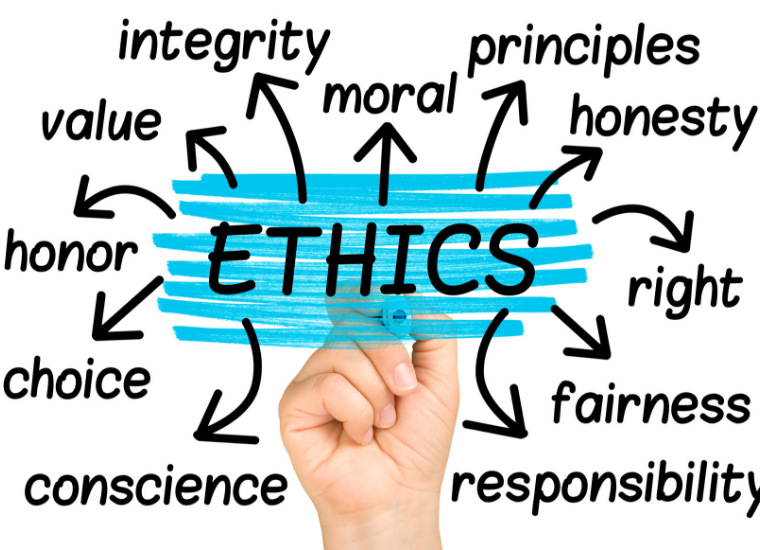Ethics, morals, and accountability are values we should always uphold. But what happens when a close family member, friend, or colleague steps out of line? It’s easy to feel anger or disappointment toward wrongdoers when they are distant figures or strangers. Yet, when the wrongdoer is within our circle, accountability becomes far more complicated, as loyalty and personal ties can cloud our judgment. Still, true integrity means holding those close to us to the same standards we expect from society at large, ensuring that ethics and morals remain central to all relationships.
Some of the most challenging and crucial moments for growth happen when we confront unethical behaviour within our circles. Here’s why upholding accountability, no matter how close to home, is one of the essential traits of a good citizen.
1. Ethics Are Not Conditional
Ethics and integrity are easy principles to stand by in theory. However, when someone tests those values in real life, especially when a close relationship is involved, it’s easy to compromise our principles. Good ethics don’t change depending on who is involved; if we believe in honesty, respect, and fairness, we must apply those standards universally—even if that means being critical of a friend or family member. True ethics don’t bend based on the wrongdoer’s identity; they require consistency, courage, and conviction.
By calling out wrongdoing within our circles, we’re setting a high bar for integrity that transcends loyalty to any one person. It’s a stand for honesty and for a world where wrongdoing is challenged rather than overlooked.
2. Accountability Builds Respect and Trust
Holding people accountable isn’t just about pointing fingers or enforcing justice; it’s about creating a foundation of respect and trust. We gain respect by standing up for what’s right, even when it’s complicated. When people see that we’re willing to hold those closest to us to the same standards, they understand that our values are genuine and consistent.
Imagine a workplace or family where people ignore wrongdoing and routinely sacrifice trust. Over time, resentment and distrust grow. Holding each other accountable creates a culture where people feel respected, and integrity is valued, ultimately strengthening bonds rather than damaging them.
3. True Loyalty Includes Constructive Criticism
It’s natural to want to support those we care about, but true loyalty doesn’t mean blindly defending someone who’s in the wrong. Real loyalty is constructive, encouraging growth, positive change, and accountability. When we disregard a loved one’s mistakes, we’re not protecting them but allowing them to continue on a harmful path.
Helping someone understand their wrongdoing with compassion and encouragement is a mark of genuine care. Rather than seeing accountability as an attack, we can reframe it as a way to support the person’s development, helping them grow in integrity and character.
4. Accountability Promotes a Healthy Society
Accountability is a cornerstone of any thriving society. When wrongdoing is ignored or justified within our inner circles, it creates a ripple effect that normalizes unethical behaviour. It suggests that people with connections or influence can evade consequences, creating a double standard that ultimately harms communities.
By holding people close to us accountable, we’re promoting a culture of responsibility that benefits everyone. We’re saying that no one is above the values of honesty, respect, and justice. In doing so, we’re helping to foster a society that values these principles across all levels, from the family dinner table to the halls of power.
5. We Set an Example for Others
One of the most impactful ways to influence others is by example. When we stand by our values and expect accountability from everyone, including those closest to us, we show others what integrity looks like in action. This example is particularly powerful for younger people—children, students, or junior colleagues who look to us for guidance.
If they see us avoiding difficult conversations or ignoring unethical behaviour among friends or family, they may learn to do the same. But if they see us standing up for what’s right, even when it’s hard, they’ll understand that integrity matters more than convenience or comfort.
6. It Starts Small, But It Matters Big
Many of us dream of making a difference or promoting justice on a large scale, but the truth is that ethical actions often start small. Holding a loved one accountable may not seem as monumental as changing public policy or leading a protest, but these small actions are where we build true ethical character.
We create a ripple effect when we practice integrity in our closest relationships. Others around us take notice, and our commitment to doing what’s right grows stronger, making it easier to uphold those values in more substantial and complex situations.
In Conclusion
Ethics, accountability, and integrity should not depend on relationships or personal comfort. Upholding these principles is a hallmark of a good citizen, a responsible friend, and a trustworthy person. Confronting wrongdoing among those close to us may feel uncomfortable or risky, but it ultimately strengthens our communities, relationships, and character.
So, the next time you encounter wrongdoing close to home, remember: it’s not just about calling out the act—it’s about building a foundation of integrity that you and those around you can rely on. True accountability may be difficult, but it’s one of the most profound ways to make a positive impact, starting with the people we care about most.
